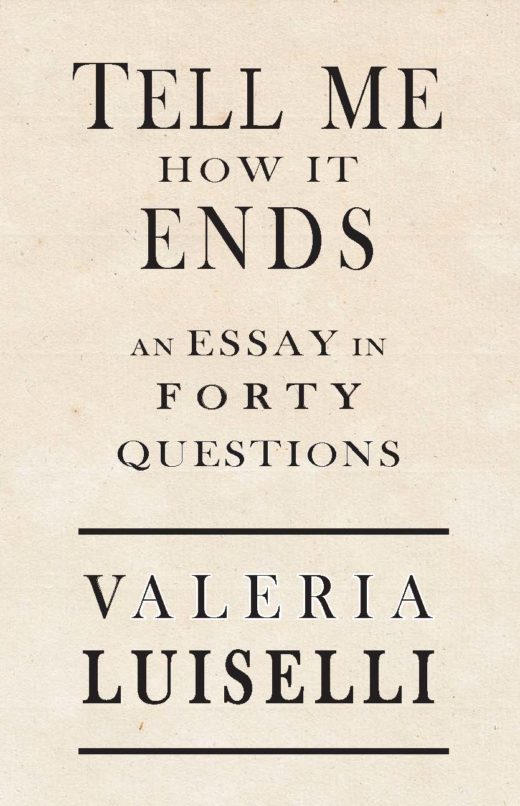- Midnight Thrift

- A New Day Has Come: A Review of Radical Hope: Letters of Love and Dissent in Dangerous Times
The Art of Protest: A review of Valeria Luiselli’s Tell Me How It Ends
Anjanette Delgado

Five years later, Luiselli’s newest work of nonfiction, since her acclaimed Sidewalks was published in 2014, Tell Me How it Ends: An Essay in 40 Questions, describes the Central American Refugee Crisis from 2008 to 2013, and focuses on its primary victims: the children. While waiting for her own green card to arrive, Luiselli worked as a translator for a nonprofit organization helping migrant children fill out the court-required questionnaire from which the book borrows its structure, and which pro-bono lawyers use to decide whether there is a chance of convincing a judge to grant permission for the child to remain in the United States as part of the Central American Minors Program. If no clear case is derived from the answers to those 40 questions, the child is likely deported.
The tone of this book is one of profound and committed anger, flawlessly documented, and Luiselli makes a clear and layered case for citizen activism, weaving facts with true emotion as she shapes the narrative. La Bestia, the infamous train that transports the children into the horrors of immigrant limbo, is a long line just like the children’s lives are lines, beginnings trying to meet their ends. The system, too, takes geometric form, as Luiselli describes the children caught in its labyrinth: “… invisible specters who go up and down elevators and wander the hallways imprisoned in circular nightmares.”
Luiselli becomes an advocate for a 16 year-old boy from Honduras named Manu, who, like many other immigrant children, endured the dangers of death by crossing in an effort to flee the dark reach of gangs that extend even into parts of the United States, living in fear of retaliation against family members—females are especially vulnerable—and the guilt, isolation, and racism encountered once they arrive in their promised land. “It’s then that from his pocket, he pulls out the piece of paper that haunted me for so long—a copy of the police report he filed against the gang. He filed it before his friend was killed, but the police never did anything. And Manu knows, because everyone knows that’s how it is, that the police wouldn’t do anything to prevent a second incident, or a third.”
Through her time with Manu, Luiselli finds herself transforming from helpful bystander into invested activist. When she goes to her job at Hofstra University to teach Advanced Spanish Conversation, Luiselli can’t help sharing stories of the children in crisis with her class. It’s these young college students, still children themselves in some ways, who create the hopeful breakthrough of the book, responding to their professor with compassion, fearlessness, and ingenuity.
Luiselli tells how they come together to create a student political organization capable of partnering with local nonprofits to empower migrant children by way of English classes, college prep sessions, team sports, civics discussions, and even a radio program. The web of support her own students dream up shows Luiselli that building community via activism might be an antidote to the helplessness she has felt all this time, that practical action can effect true change if we are all willing to get involved, and this may be as close as we get to the answer of how it ends.
Anjanette Delgado is the author of The Heartbreak Pill and The Clairvoyant of Calle Ocho. She lives in Miami.








